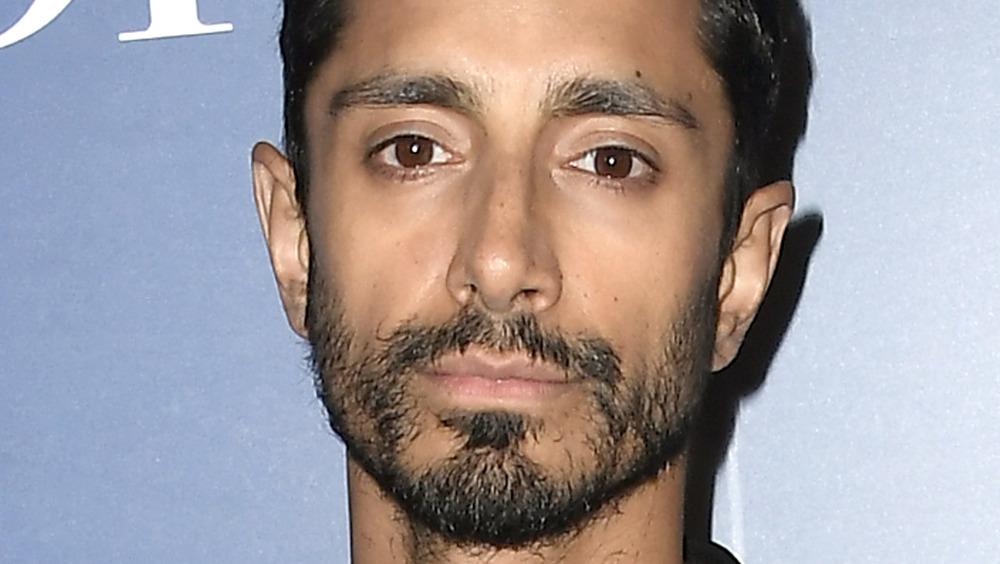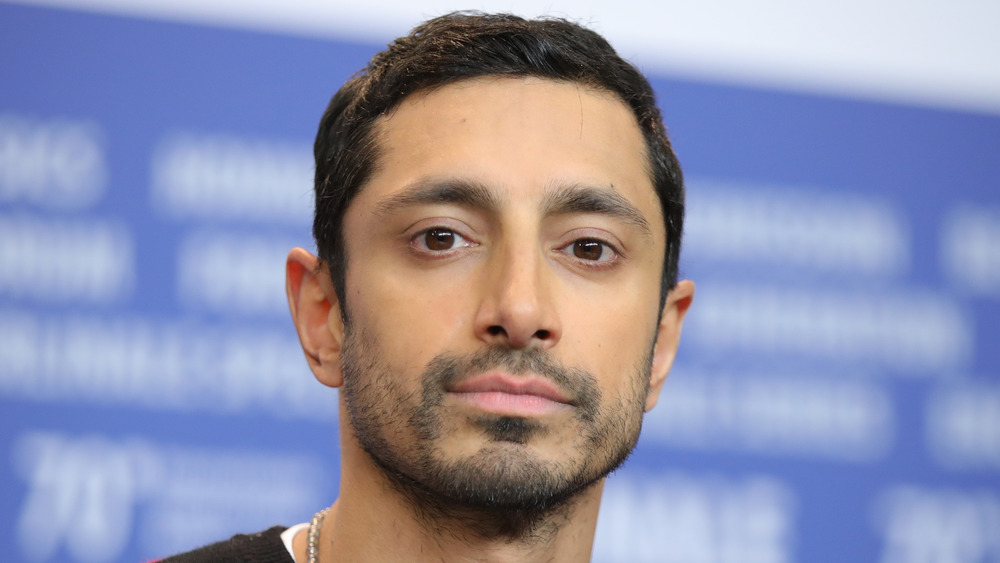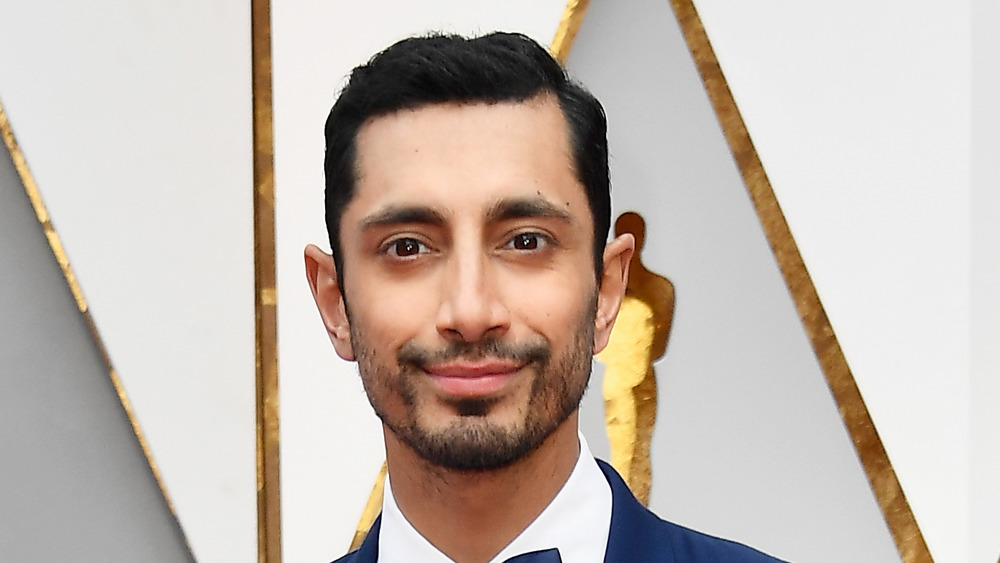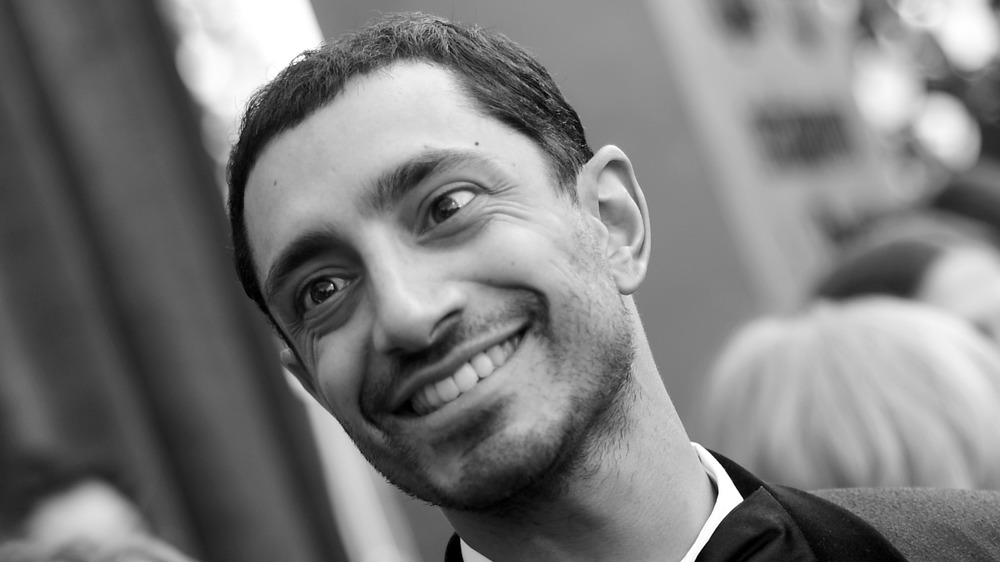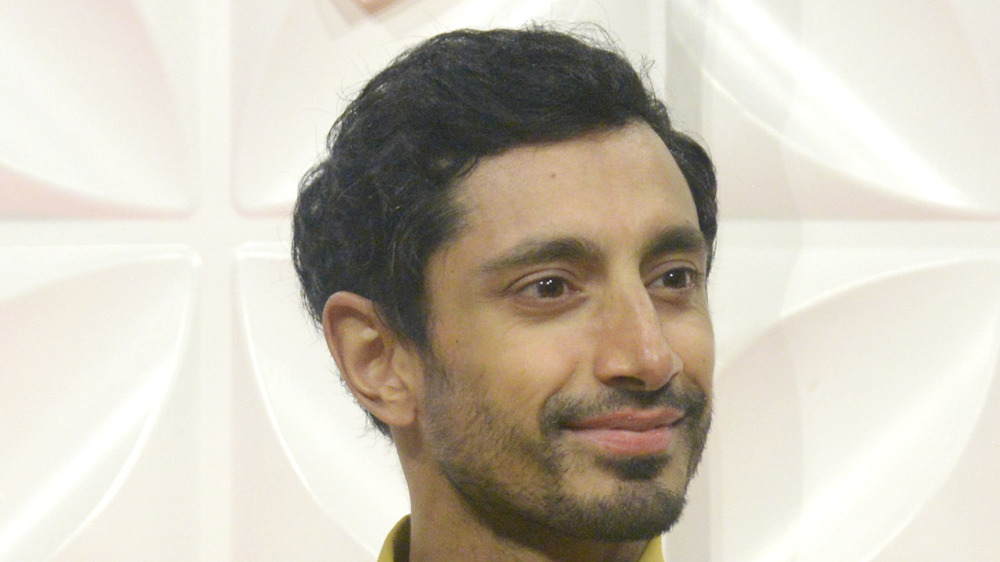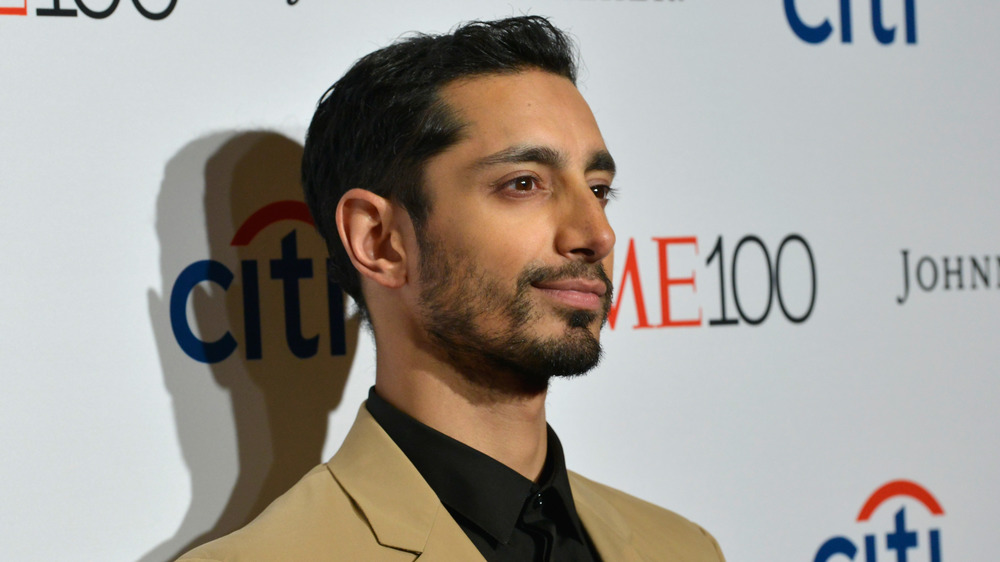What You Don't Know About Riz Ahmed
Riz Ahmed is one of the hottest actors working today — in all senses of the word. Taking charge in the highly varied likes of Rogue One: A Star Wars Story, The OA, The Night Of, and Nightcrawler, Ahmed has proven himself equally adept at handling TV drama and blockbuster action. The British-Pakistani multi-hyphenate is an established performer both onscreen and in music, too, as well as being an outspoken and passionate activist. Ahmed has a platform, and he knows how to use it.
Originally becoming known to British audiences via his roles in Wired, Dead Set, and celebrated black comedy Four Lions, the London native took his time breaking through stateside. But he's now hotly tipped for Oscar glory thanks to a revelatory turn in Sound of Metal. Although obviously an A-lister, there's plenty American audiences in particular don't know about Riz Ahmed. Suffice to say, we really ain't seen nothing yet, but for now, let's get to know this talented performer a bit better.
Riz Ahmed is incredibly dedicated to his art
In Sound of Metal, Riz Ahmed plays Ruben, a heavy metal drummer who loses his hearing and has to cope with re-learning everything he thought he knew about life. To portray the character effectively, the actor worked with coaches for seven months of intense training so that he could accurately hit the sticks onscreen. "Riz is a drummer, he's one of us," gushed Guy Licata, whom Ahmed dubbed his "Mr. Miyagi," according to Variety. Likewise, fellow pro Sean Powell became Ruben's "spirit animal," serving as the inspiration for the character's tattoo design.
Writer-director Darius Marder noted that shooting the film in sequence "put a huge amount of pressure on Riz to learn in time for us to start." He explained how mastering drumming "didn't just set the tone for the movie, it's how Riz embodies the character, how he becomes Ruben." As Ahmed acknowledged, "The overwhelming, immersive nature of that challenge really appealed to me."
ASL taught Riz Ahmed the true meaning of communication
When it came to playing a deaf character in Sound of Metal, Riz Ahmed refused to slack off, explaining to Variety that he learned American Sign Language not just so he could improvise on set, but also to ensure the deaf community was accurately represented onscreen. "Ultimately, it was out of respect. I didn't want to say, 'Teach me a couple of words in ASL.' If Ruben as a character is trying to learn about deaf culture in his film, then I want to authentically be learning about deaf culture. I wanted to respect this culture that I was so lucky to be welcomed into," he explained.
Through working with coach Jeremy Lee Stone, while also integrating himself in the deaf community, the British-Pakistani actor actually learned more about himself in the process too. "Communicating in ASL is different than communicating in English because it was more emotional. You're listening with your whole body and you're communicating with your whole body," he advised. Ahmed added, "Jeremy and the deaf community taught me the real meaning of the words listening and communication."
Racial profiling is still an issue for Riz Ahmed
Back in 2006, Riz Ahmed made his feature debut in political drama The Road to Guantanamo, which chronicled a trio of British Muslims held in Guantanamo Bay for two years before being released without charge. After traveling back from the Berlin Film Festival, where the movie won the best director award, Ahmed was pulled aside at the airport. As he detailed in an interview with NPR, their group was reprimanded by British intelligence officers who "asked us to follow them, took us into unmarked rooms and basically engaged in what later turned out to be a completely illegal kind of harassment."
The officers claimed to be holding them under anti-terrorism laws, suggesting during interrogation that the actors were furthering a political agenda. Ahmed ended up writing satirical song "Post 9/11 Blues" about the event, rather than suing, and the track was banned from the radio, reinforcing his feelings about using art as self-expression. As Ahmed notes, "it's not a responsibility to be political or polemical. It's actually just to do what any artist does, which is to talk honestly about their experience and in doing so, shed light on what's going on."
The British-Pakistani actor has issues with his homeland
In 2020, Riz Ahmed released The Long Goodbye, the first album he's ever done under his real name (typically, the actor and rapper performs under the moniker MC Riz). The record is a breakup album, but Ahmed is breaking up with the U.K., where he was born, rather than with a person (good news, as he only recently married wife Fatima Farheen Mirza). As he told Rolling Stone, "It's scary sharing your intimacy, your privacy, your insanity with people. But I'm realizing more and more that that's the point of this. If you can name your pain, it heals you, but it also heals others."
The Long Goodbye finds Ahmed reckoning with his identity and feeling unwelcome in his home country because of the color of his skin. Ultimately, Ahmed discovers that he first needs to acknowledge his own role. The actor explained to The New Yorker, "Rather than the question being ... should I stay in the U.K. post-Brexit, the question becomes: Who am I relying on to make me feel at home? Whose acceptance am I looking for in order to feel like I have worth and value?"
For Riz Ahmed, representation is a gift and a curse
Although Riz Ahmed is proud to represent the South Asian community, the pressure to always say and do the "right" thing can be paralyzing. As he explained to NME, "It's double-edged ... It's a gift to know that anything and everything you do might carry a wider significance than just the work itself. It might create ripples in representation, it might stretch culture a little bit, it might heal people a little bit and might allow them to be seen. And that's a gift." However, he also acknowledged that can sometimes make it harder because, "If you start making work to try to represent culture, it falls flat."
The Rogue One star's art is, by its very nature, personal. As he admitted in conversation with Octavia Spencer for Interview magazine, "I would love the freedom to just follow my curiosity without having to analyze what I choose to give a platform to." Still, "At the same time, it's such a gift to be animated by a sense of mission beyond your own creative interests."
